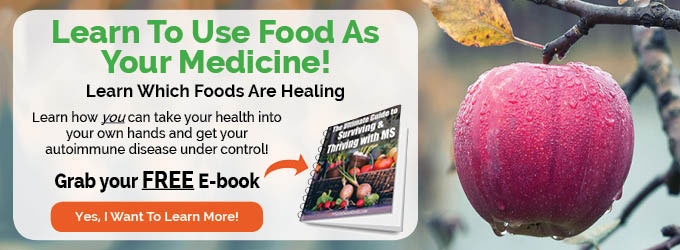Last Updated on December 5, 2023 by Cathy

If you’re unfamiliar with their list, it’s a list of produce with the most and fewest pesticide residues. Pesticides aren’t only toxic they can lead to many health conditions and death. They’re linked to reproductive problems, learning disabilities, and damage to the nervous system.
EWG analyzed the list from the United States Department of Agriculture. They tested produce the way it is typically eaten by the consumer (peeled or washed). Nearly 70% of the conventional produce tested had at least one pesticide on it. The EWG’s list will help you choose to produce with the fewest pesticides for a healthier diet.
Strawberries
Strawberries are high in antioxidants, vitamin C, and fiber. The antioxidants protect the brain and spinal cord from free-radical damage. Vitamin C is critical for restoring the central nervous system and the immune system. Strawberries contain flavonoids which can reduce inflammation in the brain.
Unfortunately, for the third year in a row, strawberries are at the top of the Dirty Dozen list. EWG discovered one-third of all strawberry samples had ten or more pesticides. One strawberry sample contained “an astounding” 22 different pesticide residues.
It’s best to buy organic to avoid pesticides when you’re trying to heal your body from an autoimmune disease. Pesticides are toxic, they’re created to kill living organisms. The U.S. sets these “safety levels” for healthy adults not for people with a weakened immune system. If they set the safety limit for children many of these fruits and vegetables would fail.
Most of these pesticides pose health concerns including:
- Brain toxicity
- Cancer
- Hormone disrupters
- Nervous system toxicity
Organic
If the produce shows up on the Dirty Dozen list it’s best to eat the organic version. Although, it’s smart to eat all organic to reduce your exposure to pesticides. On some produce the pesticides soak completely through them such as berries or apples. By eating organic you’re also sending a message that you support environmentally friendly farming practices.
Always wash your produce before eating it. If you don’t wash conventional produce you’ll be ingesting even more pesticides. However, washing conventional produce before eating it doesn’t eliminate all the pesticides. This is why it’s a good idea to avoid conventionally grown fruits and vegetables on the EWG’s Dirty Dozen list.
Dirty Dozen (buy organic)
For your convenience, EWG lists these in descending order starting with the worst. This year they added a 13th member to its Dirty Dozen list and that’s hot peppers. Nearly three-quarters of the hot peppers contained traces of highly toxic pesticides.
- Strawberries
- Spinach
- Nectarines
- Apples
- Grapes
- Peaches
- Cherries
- Pears
- Tomatoes
- Celery
- Potatoes
- Sweet Bell Peppers
+ Hot Peppers
Clean Fifteen (lowest in pesticides)
Produce with a thick outer shell like pineapples will have fewer pesticide residues. The Clean Fifteen list includes produce with the least amounts of pesticide residues. If your budget is a concern, you can feel safer eating these conventionally grown produce.
- Avocados
- Sweet Corn*
- Pineapples
- Cabbages
- Onions
- Sweet Peas, frozen
- Papayas
- Asparagus
- Mangoes
- Eggplants
- Honeydew Melons
- Kiwis
- Cantaloupes
- Cauliflower
- Broccoli
*Sweet corn is a grain and should be avoided.

Genetically Modified
Papaya, summer squash, and sweet corn sold in the U.S. are produced from genetically modified (GM) seeds. GM produce is doused in Roundup to kill insects, and weeds, and prevent other plant diseases. This results in higher crop yields which benefits the farmer. GM apples and potatoes may soon be next to hit grocery store shelves.
Buy organic varieties to avoid pesticides and GMO produce. They’re known to disrupt the healthy gut bacteria and immune system. It’s still best to eat produce from the Dirty Dozen list rather than processed foods filled with sugar. If possible peel the produce before eating it like cucumbers.
Make Smart Choices
Use the Dirty Dozen and Clean Fifteen list to help you choose which produce is right for you. You should be eating between six and nine cups of vegetables each day. That’s a lot of pesticides if you’re only eating conventionally grown produce.
Always wash conventionally grown fruits and vegetables. Be more thorough if they’re on the Dirty Dozen list. Washing them in a solution of 10% white vinegar and 90% water for ten seconds helps remove some of the pesticide residues.
To help keep the cost down on organic fruits and vegetables, eat them when they’re in season. When it’s out of season like fresh blueberries in October they’re extremely expensive. Instead, buy something that’s in season such as apples. You can also purchase frozen produce year-round to save money. Try growing your garden, it not only saves you money but it’s very rewarding. Plus, you’ll get some much-needed vitamin D from the sunshine. You don’t need a large area to grow a garden, container gardening is just as successful and rewarding.
Do Your Best
Having an autoimmune disease like multiple sclerosis, your body is already compromised. Avoiding produce high in pesticides is one less thing your body has to deal with. Plus, the nervous system is one of the slowest to heal so you should help your body out as much as possible.
I have to admit, I try my best to buy all organic produce. But, sometimes it’s impossible to always buy organic. That’s why you need to learn and make smart choices. What matters is to do your best.
The Ultimate Guide to Surviving & Thriving with MS
Unlock the key to a vibrant life with multiple sclerosis by subscribing to my newsletter and gaining exclusive access to ‘The Ultimate Guide to Surviving & Thriving with MS.’ It’s packed with valuable information on natural management strategies and clean health lifestyle practices that you can start today.
<script async id=”_ck_456134″ src=”https://forms.convertkit.com/456134?v=7″></script>







